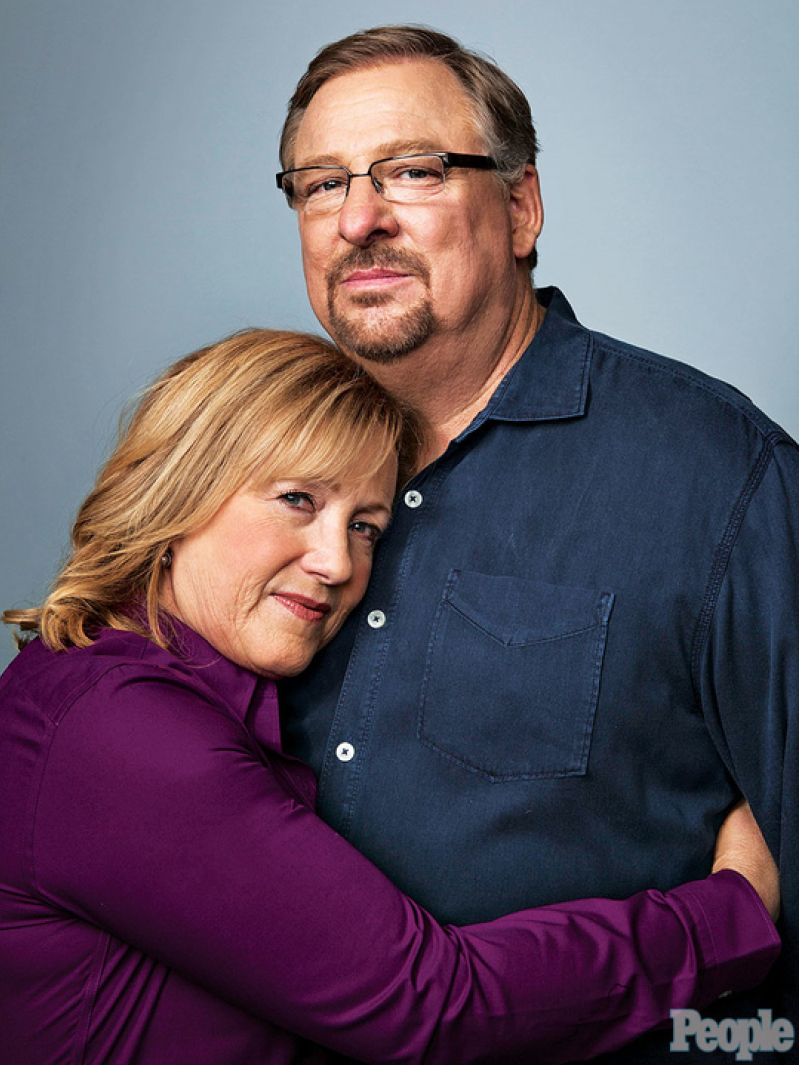
Kay Warren, wife of Pastor Rick Warren, has offered some advice on ministering to those struggling with mental illness or considering suicide and said that while it can be "messy work," we are called by Jesus to come alongside people in their "most desperate times."
"All church members can play a role in helping people with mental illness," Warren, best-selling author and Bible teacher who co-founded Saddleback Church in Lake Forest, California, told Christianity Today. "It starts with a decision to care as Jesus would and then commit to receive training so that we can walk compassionately alongside of these brothers and sisters in pain."
The Church should care about those struggling with mental illness, Warren said, because of the example Jesus set for us during His time on earth.
"When people were cast out by society, like the woman at the well or the lepers, Jesus offered them his presence," she said. "He didn't withhold himself from them, so why should we? If anything, he ran toward them and met them with compassion when they came his direction."
Warren admitted that ministering to people with severe mental illness or suicidal thoughts is "messy work," because "sometimes people are hanging on by a fingernail."
"We become a voice of love that whispers that they still matter, even in their illness and struggle," she said. "They have dignity-they're made in the image of God and have worth. When we come alongside and provide practical care by cleaning their house, holding their hand, and being with them in their most disheveled and frightened state, we remind them that they have worth."
After losing their 27-year-old son, Matthew, to suicide in 2013, Kay and Rick Warren have become major mental health advocates in the church, organizing conferences on the issue and calling for more Christian involvement.
Matthew Warren struggled with mental illness, deep depression and suicidal thoughts throughout his life. Over the years, he had been treated by America's best doctors, had received counseling and medication and been the recipient of numerous prayers from others, his father said.
Sadly, the young man died at the age of 27 from a self-inflicted gunshot wound on April 5, 2013.
Warren told CT she's been "encouraged" by the response she's seen in the church, but still, many people are unsure of how to help. Far too often, when people mention suicide, pastors think they need to immediately call the professionals or admit them to a hospital. While there is definitely a point where that is necessary, Warren pointed out that sometimes, people who live with chronic thoughts of suicide simply need extra support and care.
"Loving, trained church staff and volunteers could provide that place of safety and TLC," she said. "If we weren't so afraid of talking honestly about suicidal thoughts, we could provide the kind of listening ear, warm arm around the shoulder, and tender care that could walk struggling people through a crisis."
There are ways to differentiate between a crisis which requires treatment and a person who just needs some care and attention, Warren said. One resource for those seeking to be trained is the one day Mental Health First Aid course offered throughout the country.
"It is vital for those living with mental illness or having suicidal thoughts to see their doctors and therapists; in reality, a person will see their psychiatrist or psychologist once a week or once every couple weeks," she said. "What about all the hours in between? Family and friends can do their best to help and care for the individual, yet they can get burned out if the entirety of care for their family member is on them. A care team fills in those big gaps of care."
Today, Warren travels across the country to speak about her experience and advocate early treatment and intervention.
"I really can't even count in the last 2½ years how many people have come up to me and said Matthew's suicide has caused them to decide not to take their lives," she told CNN. "They watched our family and saw the devastation that we've experienced. Some have said to me, 'I don't care how bad it gets. I can't do that to my mom and dad, my wife or my kids.' And then there are those that have lost someone to suicide, but our story of resilience and hope has given them the courage to get out of bed."
She added that some days, her faith is the only thing that keeps her going.
"When everything in my body is telling me to stay in my room and curl up in despair, it is God that has carried me and continues to carry me."






